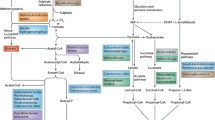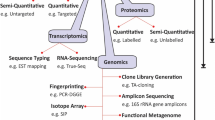Abstract
Asian elephant is large herbivorous animal with elongated hindgut. To explore fecal microbial community composition with various ages, sex and diets, and their role in plant biomass degrading and nutrition conversation. We generated 119 Gb by metagenome sequencing from 10 different individual feces and identified 5.3 million non-redundant genes. The comprehensive analysis established that the Bacteroidetes, Firmicutes and Proteobacteria constituted the most dominant phyla in overall fecal samples. In different individuals, the alpha diversity of the fecal microbiota in female was lower than male, and the alpha diversity of the fecal microbiota in older was higher than younger, and the fecal microbial diversity was the most complex in wild elephant. But the predominant population compositions were similar to each other. Moreover, the newborn infant elephant feces assembled and maintained a diverse but host-specific fecal microbial population. The discovery speculated that Asian elephant maybe have start to building microbial populations before birth. Meanwhile, these results illustrated that host phylogeny, diets, ages and sex are significant factors for fecal microbial community composition. Therefore, we put forward the process of Asian elephant fecal microbial community composition that the dominant populations were built first under the guidance of phylogeny, and then shaped gradually a unique and flexible gut microbial community structure under the influences of diet, age and sex. This study found also that the Bacteroidetes were presumably the main drivers of plant fiber-degradation. A large of secondary metabolite biosynthetic gene clusters, and genes related to enediyne biosynthesis were found and showed that the Asian elephant fecal microbiome harbored a diverse and abundant genetic resource. A picture of antibiotic resistance genes (ARGs) reservoirs of fecal microbiota in Asian elephants was provided. Surprisingly, there was such wide range of ARGs in newborn infant elephant. Further strengthening our speculation that the fetus of Asian elephant has colonized prototypical fecal microbiota before birth. However, it is necessary to point out that the data give a first inside into the gut microbiota of Asian elephants but too few individuals were studied to draw general conclusions for differences among wild and captured elephants, female and male or different ages. Further studies are required. Additionally, the cultured actinomycetes from Asian elephant feces also were investigated, which the feces of Asian elephants could be an important source of actinomycetes.









Similar content being viewed by others
Data Availability
Metagenome raw sequence data have been deposited in the Sequence Read Archive (SRA) of NCBI. The accession codes were showed in Table S3. The 16S rRNA gene sequences of isolated actinobacterial strains also have been deposited in the NCBI. GenBank accession numbers were showed in Fig S2.
References
Almeida A, Mitchell AL, Boland M et al (2019) A new genomic blueprint of the human gut microbiota. Nature 568:499–504. https://doi.org/10.1038/s41586-019-0965-1
Altschul SF, Madden TL, Schäffer AA et al (1997) Gapped BLAST and PSI-BLAST: a new generation of protein database search programs. Nucleic Acids Res 25:3389–3402. https://doi.org/10.1093/nar/25.17.3389
Blin K, Shaw S, Steinke K et al (2019) antiSMASH 5.0: updates to the secondary metabolite genome mining pipeline. Nucleic Acids Res 47:W81–W87. https://doi.org/10.1093/nar/gkz310
Brulc JM, Antonopoulos DA, Berg Miller ME et al (2009) Gene-centric metagenomics of the fiber-adherent bovine rumen microbiome reveals forage specific glycoside hydrolases. Proc Natl Acad Sci U S A 106:1948–1953. https://doi.org/10.1073/pnas.0806191105
Cantarel BI, Coutinho PM, Rancurel C et al (2009) The Carbohydrate-Active EnZymes database (CAZy): an expert resource for glycogenomics. Nucleic Acids Res 37:233–238. https://doi.org/10.1093/nar/gkn663
Chun J, Goodfellow M (1995) A phylogenetic analysis of the genus Nocardia with 16S rRNA gene sequences. Int J Syst Bacteriol 45:240–245. https://doi.org/10.1099/00207713-45-2-240
Chung H, Pamp SJ, Hill JA et al (2012) Gut immune maturation depends on colonization with a host-specific microbiota. Cell 149:1578–1593. https://doi.org/10.1016/j.cell.2012.04.037
Clauss AM, Frey R, Kiefer B et al (2016) (2016) The maximum attainable body size of herbivorous mammals: morphophysiological constraints on foregut, and adaptations of hindgut fermenters. Oecologia 136:14–27. https://doi.org/10.1007/s00442-003-1254-z
Cohen DR, Townsend CA (2018) A dual role for a polyketide synthase in dynemicin enediyne and anthraquinone biosynthesis. Nat Chem 10:231–236. https://doi.org/10.1038/NCHEM.2876
Collado MC, Rautava S, Aakko J et al (2016) Human gut colonisation may be initiated in utero by distinct microbial communities in the placenta and amniotic fluid. Sci Rep 6:1–13. https://doi.org/10.1038/srep23129
Crits-Christoph A, Diamond S, Butterfield CN et al (2018) Novel soil bacteria possess diverse genes for secondary metabolite biosynthesis. Nature 558:440–444. https://doi.org/10.1038/s41586-018-0207-y
Cui X, Mao P, Zeng M et al (2001) Streptimonospora salina gen. nov., sp. nov., a new member of the family Nocardiopsaceae. Int J Syst Bacteriol Micr 51:357–363. https://doi.org/10.1099/00207713-51-2-357
Ding N, Jiang Y, Han L et al (2016) Bafilomycins and odoriferous sesquiterpenoids from Streptomyces albolongus isolated from Elephas maximus feces. J Nat Prod 79:799–805. https://doi.org/10.1021/acs.jnatprod.5b00827
Donaldson GP, Lee SM, Mazmanian SK (2015) Gut biogeography of the bacterial microbiota. Nat Rev Microbiol 14:20–32. https://doi.org/10.1038/nrmicro3552
de Goffau MC, Lager S, Sovio U et al (2019) Human placenta has no microbiome but can contain potential pathogens. Nature. https://doi.org/10.1038/s41586-019-1451-5
Flint HJ, Bayer EA, Rincon MT et al (2008) Polysaccharide utilization by gut bacteria: potential for new insights from genomic analysis. Nat Rev Microbiol 6:121–131. https://doi.org/10.1038/nrmicro1817
Flint HJ, Flint HJ, Scott KP et al (2012a) Microbiology group. Nat Rev Gastroenterol Hepatol 9:577–589. https://doi.org/10.1038/nrgastro.2012.156
Flint HJ, Scott KP, Duncan SH et al (2012b) Microbial degradation of complex carbohydrates in the gut. Gut Microbes 3:289–306. https://doi.org/10.4161/gmic.19897
Hayakawa M, Nonomura H (1987) Humic acid-vitamin agar, a new medium for the selective isolation of soil actinomycetes. J Ferment Technol 65:501–509. https://doi.org/10.1016/0385-6380(87)90108-7
Hess M (2011) Metagenomic discovery of biomass-degrading genes and genomes from cow rumen. Science 463:463–467. https://doi.org/10.1126/science.1200387
Hover BM, Kim SH, Katz M et al (2018) Culture-independent discovery of the malacidins as calcium-dependent antibiotics with activity against multidrug-resistant Gram-positive pathogens. Nat Microbiol 3:415–422. https://doi.org/10.1038/s41564-018-0110-1
Huson DH, Auch AF, Qi J, Schuster SC (2007) MEGAN analysis of metagenomic data. Genome Res 17:377–386. https://doi.org/10.1101/gr.5969107
Ilmberger N, Güllert S, Dannenberg J et al (2014) A comparative metagenome survey of the fecal microbiota of a breast-and a plant-fed asian elephant reveals an unexpectedly high diversity of glycoside hydrolase family enzymes. PLoS ONE 9:1–12. https://doi.org/10.1371/journal.pone.0106707
Ishwaran N (1983) Elephant and woody-plant relationships in Gal Oya, Sri Lanka. Biol Conserv 26:255–270. https://doi.org/10.1016/0006-3207(83)90077-0
Jin C, Ciochon RL, Dong W et al (2007) The first skull of the earliest giant panda. Proc Natl Acad Sci U S A 104:10932–10937. https://doi.org/10.1073/pnas.0704198104
Kanehisa M, Sato Y, Kawashima M et al (2016) KEGG as a reference resource for gene and protein annotation. Nucleic Acids Res 44:D457–D462. https://doi.org/10.1093/nar/gkv1070
Kim OS, Cho YJ, Lee K et al (2012) Introducing EzTaxon-e: a prokaryotic 16s rRNA gene sequence database with phylotypes that represent uncultured species. Int J Syst Bacteriol Micr 62:716–721. https://doi.org/10.1099/ijs.0.038075-0
Ley RE, Hamady M, Lozupone C et al (2008a) Evolution of mammals and their gut microbes. Science 320:1647–1651. https://doi.org/10.1126/science.1155725
Ley RE, Lozupone CA, Hamady M et al (2008b) Worlds within worlds: evolution of the vertebrate gut microbiota. Nat Rev Microbiol 6:776–788. https://doi.org/10.1038/nrmicro1978
Li W, Godzik A (2006) Cd-hit: a fast program for clustering and comparing large sets of protein or nucleotide sequences. Bioinformatics 22:1658–1659. https://doi.org/10.1093/bioinformatics/btl158
Li R, Yu C, Li Y et al (2009) SOAP2: an improved ultrafast tool for short read alignment. Bioinformatics 25:1966–1967. https://doi.org/10.1093/bioinformatics/btp336
Liu B, Pop M (2009) ARDB—Antibiotic resistance genes database. Nucleic Acids Res 37:443–447. https://doi.org/10.1093/nar/gkn656
Moskvitch K (2014) Bacteria found in healthy placentas. Nature. https://doi.org/10.1038/nature.2014.15274
Peng Y, Leung HCM, Yiu SM, Chin FYL (2012) IDBA-UD: a de novo assembler for single-cell and metagenomic sequencing data with highly uneven depth. Bioinformatics 28:1420–1428. https://doi.org/10.1093/bioinformatics/bts174
Pope PB, Denman SE, Jones M et al (2010) Adaptation to herbivory by the Tammar wallaby includes bacterial and glycoside hydrolase profiles different from other herbivores. Proc Natl Acad Sci U S A 107:14793–14798. https://doi.org/10.1073/pnas.1005297107
Pope PB, Mackenzie AK, Gregor I et al (2012) Metagenomics of the svalbard reindeer rumen microbiome reveals abundance of polysaccharide utilization loci. PLoS ONE 7:1–10. https://doi.org/10.1371/journal.pone.0038571
Powell S, Szklarczyk D, Trachana K et al (2012) eggNOG v3.0: Orthologous groups covering 1133 organisms at 41 different taxonomic ranges. Nucleic Acids Res 40:284–289. https://doi.org/10.1093/nar/gkr1060
Qin J, Li R, Raes J et al (2010) A human gut microbial gene catalog established by metagenomic sequencing. Nature 464:59–65. https://doi.org/10.1038/nature08821.A
Rosenberg E, Sharon G, Atad I, Zilber-Rosenberg I (2010) The evolution of animals and plants via symbiosis with microorganisms. Environ Microbiol Rep 2:500–506. https://doi.org/10.1111/j.1758-2229.2010.00177.x
Russell JB, Rychlik JL (2001) Factors that alter rumen microbial ecology. Science 292:1119–1122. https://doi.org/10.1126/science.1058830
Stewart RD, Auffret MD, Warr A et al (2018) Assembly of 913 microbial genomes from metagenomic sequencing of the cow rumen. Nat Commun 9:1–11. https://doi.org/10.1038/s41467-018-03317-6
Sukumar R (2006) A brief review of the status, distribution and biology of wild Asian elephants Elephas maximus. Int Zoo Yearb 40:1–8. https://doi.org/10.1111/j.1748-1090.2006.00001.x
Svartström O, Alneberg J, Terrapon N et al (2017) Ninety-nine de novo assembled genomes from the moose (Alces alces) rumen microbiome provide new insights into microbial plant biomass degradation. ISME J 11:2538–2551. https://doi.org/10.1038/ismej.2017.108
Tamura K, Nei M (1993) Estimation of the number of nucleotide substitutions in the control region of mitochondrial DNA in humans and chimpanzees. Mol Biol Evol 10:512–526. https://doi.org/10.1093/oxfordjournals.molbev.a040023
Tamura K, Stecher G, Kumar S (2021) MEGA 11: Molecular evolutionary genetics analysis version 11. Mol Biol Evol 38:3022–3027. https://doi.org/10.1093/molbev/msab120
Terrapon N, Lombard V, Gilbert HJ, Henrissat B (2015) Automatic prediction of polysaccharide utilization loci in Bacteroidetes species. Bioinformatics 31:647–655. https://doi.org/10.1093/bioinformatics/btu716
Toyoda A, Iio W, Mitsumori M, Minato H (2009) Isolation and identification of cellulose-binding proteins from sheep rumen contents. Appl Environ Microbiol 75:1667–1673. https://doi.org/10.1128/AEM.01838-08
Wattam AR, Davis JJ, Assaf R et al (2017) Improvements to PATRIC, the all-bacterial bioinformatics database and analysis resource center. Nucleic Acids Res 45:D535–D542. https://doi.org/10.1093/nar/gkw1017
Willyard BC (2018) Could baby’s first bacteria take root before birth. Nature 553:264–265. https://doi.org/10.1038/d41586-018-00664-8
Xiao L, Feng Q, Liang S et al (2015) A catalog of the mouse gut metagenome. Nat Biotechnol 33:1103–1108. https://doi.org/10.1038/nbt.3353
Xiao L, Estellé J, Kiilerich P et al (2016) A reference gene catalogue of the pig gut microbiome. Nat Microbiol 1:1–6. https://doi.org/10.1038/nmicrobiol.2016.161
Xue Z, Zhang W, Wang L et al (2015) The bamboo-eating giant panda harbors a carnivore-like gut microbiota, with excessive seasonal variations. Mbio 6:1–12. https://doi.org/10.1128/mBio.00022-15
Yan X, Chen JJ, Adhikari A et al (2017) Genome Mining of Micromonospora yangpuensis DSM 45577 as a producer of an anthraquinone-fused enediyne. Org Lett 19:6192–6195. https://doi.org/10.1021/acs.orglett.7b03120
Zhang L, Wang N (2003) An initial study on habitat conservation of Asian elephant (Elephas maximus), with a focus on human elephant conflict in Simao, China. Biol Conserv 112:453–459. https://doi.org/10.1016/S0006-3207(02)00335-X
Zhang G, Junhong Bai J, Tebbe CC et al (2021) Salinity controls soil microbial community structure and function in coastal estuarine wetlands. Environ Microbiol 23:1020–1037. https://doi.org/10.1111/1462-2920.15281
Zhu W, Lomsadze A, Borodovsky M (2010) Ab initio gene identification in metagenomic sequences. Nucleic Acids Res 38:1–15. https://doi.org/10.1093/nar/gkq27
Acknowledgements
We thank the staffs at the Centre of Asian elephant Breeding and Rescue in Xishuangbanna National Natural Forest Reserve of Yunnan Province, China, for assistance with sample collection. We thank the reviewers and appreciate their constructive comments on this study.
Funding
This research was supported by the National Natural Science Foundation of China (No. 31270001, 31460005 and 81573327).
Author information
Authors and Affiliations
Contributions
GLi, YJ, LH, and CJ: designed the experiments. GL, QL, DA, LL, XH, LJ, and KZ: performed the experiments. GL, YJ, YF, LH, XH, and CJ: analyzed the data and prepared the manuscript. GL, YJ, MB, and CJ: collected samples.
Corresponding authors
Ethics declarations
Conflict of interest
The authors declare that there are no conflicts of interest.
Additional information
Publisher's Note
Springer Nature remains neutral with regard to jurisdictional claims in published maps and institutional affiliations.
Supplementary Information
Below is the link to the electronic supplementary material.
Rights and permissions
About this article
Cite this article
Li, G., Jiang, Y., Li, Q. et al. Comparative and functional analyses of fecal microbiome in Asian elephants. Antonie van Leeuwenhoek 115, 1187–1202 (2022). https://doi.org/10.1007/s10482-022-01757-1
Received:
Accepted:
Published:
Issue Date:
DOI: https://doi.org/10.1007/s10482-022-01757-1




